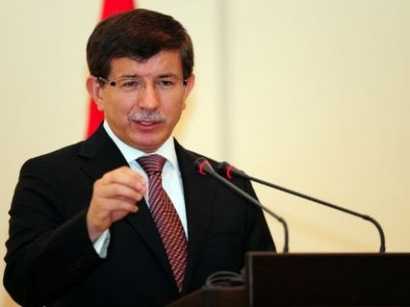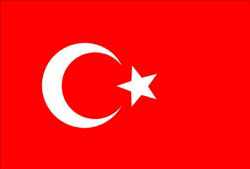 By Özdem Sanberk, Director of USAK
By Özdem Sanberk, Director of USAK
Turkey has taken a position regarding the events underway in Syria that fits in with the existing general principles and practices of its foreign policy. The good relations with the Assad regime it promoted in years gone by do not entitle it to act contrary to the values underlying Turkish foreign policy in the process now under way.
Being an international role model implies, in one sense, that other countries make efforts to adopt your ways in accordance with the example you have set. Even if there are some among Turkey’s neighbours who are engaged in exactly that, Ankara itself is making no such claim pointing it out. Turkey is a country whose society and goverment have sought peace in their own region and the rest of the world for decades, and a country whose goal is steady development and prosperity.
Naturally, Turkey would also like to see the same developments toward peace and stability in Syria, its closest neighbour. Turkey also has a democratic multiparty parliamentary tradition which has operated for sixty years, and ultimately traces its roots back even further. Its experience is unique among countries in the world where majorities of people subscribe to the traditions of Islam.
We are just at the start of an arduous journey
Turkey is conscious of the fact that multiparty democracy will not settle down overnight among its neighbors to the south. Regardless, the fire which has broken out in Syria needs to be brought under control to minimize the damage, and the tragedy now being played out needs to be brought to a conclusion as quickly as possible. Syria is the country with which Turkey shares its longest land border and whose people are important to it. It is natural for Turkey to strategize how it can be of assistance in resolving Syria’s problems beginning with the humanitarian and security aspects.
It is not only Syria which is in flux: a massive movement for change is underway all across North Africa, or more precisely, across the entire Arab world. This transformation may last for decades, and it may well be that we have not yet even traversed the very first stage of it. Let us not forget that changes in Central and Eastern Europe after the breakup of the Soviet Union took ten years to complete, despite the political and economic opportunities the European Union made available. Deficiencies in the process are still visible as well. In the Arab world, there is no equivalent source of oxygen for the transformation process. In these difficult times, the Arabs have nothing like the Marshall Plan or an international system like the Council of Europe which might provide guidance on democratic matters. The peoples who live in this region are now only at the beginning of a long and winding road which will continue ahead of them for many years. The processes of democratic and economic development will play out in the Arab lands in a lengthy and arduous fashion. It is certainly an error to come up with hasty conclusions or quick judgments.
The role of the European Union and the United States
As the processes work themselves out, the pains suffered by the Arab peoples will not abate. Neighboring countries like Turkey will also have to expect their share of this instability and lack of security. That is why it is not surprising in the least that we are showing so much interest in the developments in our neighbor Syria. To a considerable extent, whether or not the transition process can be made easier is up to the attitudes adopted by America and Europe. President Barack Obama recently spoke of boosting economic progress in the region and opportunities for employment, in addition to the obligations of financial organizations. That was definitely a step in the right direction. However, could this be enough to stop the mass migration and put out the fire that is now burning away? So far there has been no word from Europe, which is the area most affected by mass migration. Is the European Union ready to adopt new policies on trade, aid, and investment to halt the migration and increase the gross national products of these countries—which are almost all former colonies of its member states—and reduce unemployment in them? Furthermore, until the Middle East dispute is resolved, can any peace process in the Middle East be successful? Israel, the US, and the UN all have responsibilities which hardly need to be mentioned.
Turkey is acting on the basis of its traditions
The problems of Syria have to be viewed inside a broad regional and international framework of politics, economics, and society. We fall into an error if we take the easy way out and treat them as just a sectarian Islamic conflict. Preferring to do the latter will not make it easier to find a solution.
Our neighbor Syria is experiencing major humanitarian problems. If it was not, its citizens would not be fleeing to Turkey in the thousands. Regrettably, blood has been spilt. In close proximity, Turkey feels their suffering.
When humanitarian aid is required, states do not wait to be asked. This rule is surely keeping with the basic values and traditions of Turkish foreign policy. The good relations developed with the Assad regime in the recent past do not lead to the conclusion that Turkey should behave differently and violate its basic values during the process now underway.
It’s clear that Turkey is not one of the contending sides in the dispute. Syria and the wishes of its people are one and the same for us. Whatever Islamic sect and ethnic group may be involved, the blood being shed is Syrian blood. Turkey’s position toward all Syrians is fraternal and treats them equally. It sees the troubles which Syria is experiencing as its own troubles. If any of our neighbors are in need, no matter who comes to our borders, Turkey will lend them a hand regardless.
The possibility of a civil war and any instability which could spill over into the rest of the region would mean tragedy for Syria and the Middle East as a whole. Following the elections, Turkish foreign policy in all aspects has focused on Syria. Humanitarian aid and economic support are among the two main instruments of diplomacy, and Turkey is continuing to carry out its obligations in the region. At this stage, Turkey is attempting to maintain honest and constructive relations with all the sides involved. That is simply what the Turkish people expect from their government.
*This article was firstly published in July issue of USAK’s monthly strategy journal ANALİST in Turkish.
www.turkishweekly.net, 9 August 2011





